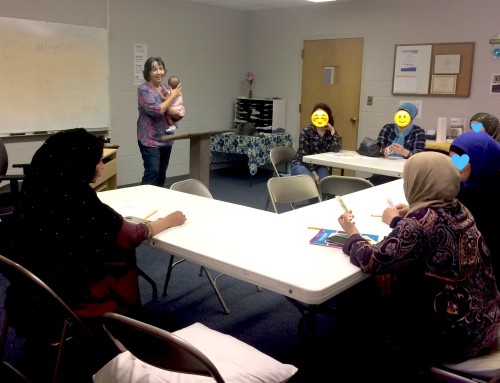Last week one Syrian friend shared with us that her brother was diagnosed with brain cancer. He had been having horrible headaches and dizzy spells for months, and thought it was just the residual effects of the war and shrapnel that had been lodged in his head from a previous injury.
When the doctors told my friend that the result of scans showed a brain tumor and that he needed to start chemo immediately, she lied and told him, “It’s no big deal; just head trauma from the IED explosion.” She’s been giving him the chemo pills and lying along the way telling him, “It’s medicine for the pain.” He will be scheduled to undergo brain surgery in the coming weeks; yet he doesn’t realize it’s for cancer.
Even when the prognosis was death, one of our Kurdish friends would not tell his grandmother that she was given 4-6 months to live. It will just make her upset, why should we tell her? It’s okay that we are lying.
Sometimes this is done in communicating about a loved one to other family members. “He’s just a little bit sick” could mean that he’s in critical condition and may not survive the night. (Sometimes though, this can backfire. If someone IS just a little bit sick it can be assumed that he’s at death’s door.)
In Islam, it is perfectly permissible to lie to a loved one if it will keep them from pain or harm. The Prophet Mohammed said, “He is not a liar who reconciles between people and conveys something good or says something good.” (from the Hadith: Al Bukhaari, 2495).
These are not the first or last friends we have here who have kept a terminal diagnosis from a family member. In their eyes they are lying to save that loved one from worrying about something they cannot change.
Learn more about Middle Eastern cultures by joining our teams in Iraq or Nashville!




